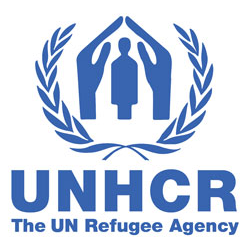Main Debates
- When are changes sufficiently fundamental, durable and stable to warrant cessation?
- Should there be exceptions to cessation?
Main Point
Criteria for determining ceased circumstances
Treaties
- UNHCR, Convention Relating to the Status of Refugees, 28 July 1951, 189 U.N.T.S. 150. Art. 1.C.
- OHCHR, Protocol Relating to the Status of Refugees, 4 October 1967, 606 U.N.T.S. 267.
Soft Law
- UNHCR, ‘Handbook on Procedures and Criteria for Determining Refugee Status under the 1951 Convention and the 1967 Protocol Relating to the Status of Refugees’, HCR/IP/4/Rev.1, 1979, paras. 118–139.
- UNHCR, Executive Committee, ‘Cessation of Status’, Conclusion No. 69 (XLIII), 9 October 1992.
UNHCR Documents
- UNHCR, ‘Guidelines on Exemption Procedures in respect of Cessation Declarations’, Division of International Protection, December 2011.
- Office of the UNHCR, ‘The Cessation Clauses: Guidelines on their Application’, Geneva, April 1999.
- UNHCR, ‘Guidelines on International Protection: Cessation of Refugee Status under Art. 1C(5) and (6) of the 1951 Convention relating to the Status of Refugees’, 10 February 2003.
- UNHCR, ‘Summary Conclusions: Cessation of Refugee Status, Expert Roundtable, Lisbon’, May 2001.
- UNHCR, ’Note on Cessation Clauses’, 30 May 1997, EC/47/SC/CRP.30.
Cases
- Salahadin v. Federal Republic of Germany, 2 March 2010 (ECJ interpretation of EC Qualification Directive in light of Art. 1C(5) of the Geneva Convention; cessation can only occur when there has been a significant, non-temporary change such that the reasons for persecution no longer exist and the legal system is effective in detecting and punishing acts of persecution).
- Hoxha & Anor v Secretary of State for the Home Department [2005] UKHL 19, 10 March 2005 (UK House of Lords decision arguing for a ’strict’ and ’restrcitive’ approach to cessation clauses in general).
- Minister for Immigration and Multicultural and Indigenous Affairs v. Qaah of 2004, [2006] HCA 53, 15 November 2006 (Australia). (Australian judicial decision holding that government can expel Afghan granted temporary protection visa only if government establishes that the safe conditions in the country of origin are settled and durable).
- Case Regarding Cessation of Refugee Status, VwGH No. 2001/01/0499, 15 May 2003 (Administrative Appeals Court). (Austrian administrative decision ruling that refugee’s intent to normalise relations with country of origin is decisive in evaluating application for passport).
Readings
Core
- J. Fitzpatrick and R. Bonoan, ‘Cessation of Refugee Protection’, in E. Feller, V. Türk, and F. Nicholson (eds), Refugee Protection in International Law: UNHCR’s Global Consultations on International Protection (Cambridge: Cambridge University Press, 2003), pp. 491–544.
- G. Goodwin-Gill and J. McAdam, The Refugee in International Law, 3rd edition, (Oxford: Oxford University Press, 2007), pp. 139–142. [G. Goodwin-Gill, The Refugee in International Law (Oxford: Oxford University Press, 1996), pp. 84–87.]
- J. Hathaway and M. Foster, The Law of Refugee Status, 2nd edition, (Cambridge: Cambridge University Press, 2014), pp. 462-499. [J. Hathaway, The Law of Refugee Status (Toronto: Butterworths, 1991), pp. 191–205, 209–211.]
- D. Milner, ‘Exemption from Cessation of Refugee Status in the Second Sentence of Art. 1C(5)/(6) of the 1951 Refugee Convention’, International Journal of Refugee Law, vol. 16, no. 1 (2004), pp. 91–107.
Extended
- S. Kneebone, M O’Sullivan, ‘Article 1C’, in A. Zimmerman (ed.), The 1951 Convention Relating to the Status of Refugees and Its 1967 Protocol: A Commentary (Oxford: Oxford University Press, 2011), pp. 483–535.
- M. O’Sullivan, ‘Withdrawing Protection Under Article 1C(5) of the 1951 Convention: Lessons from Australia’, International Journal of Refugee Law, vol. 20, no. 4 (2008), pp. 586–610.
- M.E. Cwik, ’Forced to Flee and Forced to Repatriate? How the Cessation Clause of Article 1C(5) and (6) of the 1951 Refugee Convention Operates in International Law and Practice’, Vanderbilt Journal of Transnational Law, Vol. 44 (2011), pp.711-743.
Editor’s Note
Refugee status may cease due to the following reasons:
- Acts voluntarily taken by refugees, such as the voluntary return to live at the site where persecution was earlier feared or the acquisition of another nationality (Art. 1C(1)-(4))
- Changed circumstances in the home country that remove the fear of persecution (Art. 1C(5)-(6)).
The readings above deal only with the issue of changed circumstances.
See Section VI. for further developments concerning cessation in EU law.






